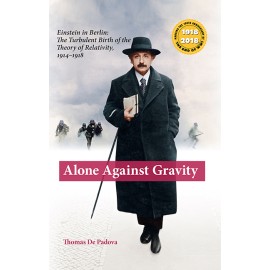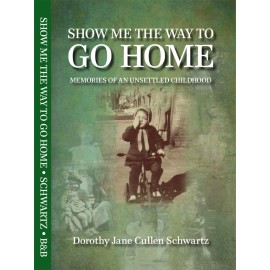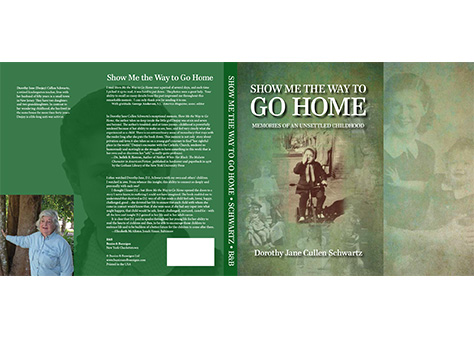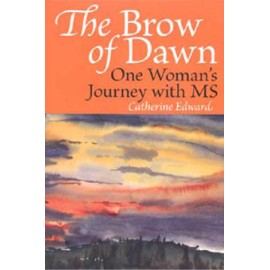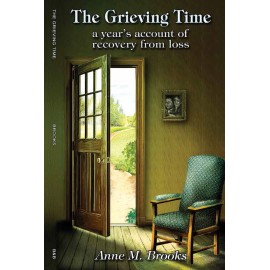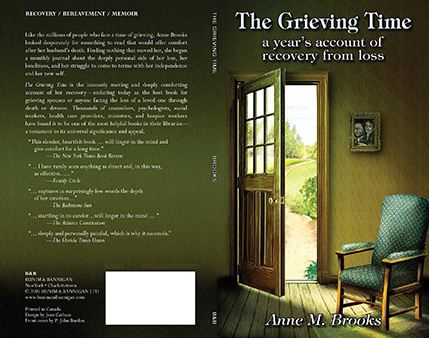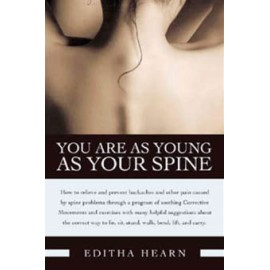Non-fiction
Alone Against Gravity - Einstein in Berlin
Product Code: 024
Alone Against Gravity
Einstein in Berlin: The Turbulent Birth of the Theory of Relativity, 1914-1918
By Thomas de Padova
Translated by Michal Schwartz
This informative and suspenseful book depicts Albert Einstein in a new light and illustrates the emergence of his general theory of relativity in the midst of the first world war. It shows how far Einstein as a single researcher could reach, and how he transformed from being a 'pure' scientist and an apolitical man into a politically engaged person and a pacifist by conviction.
Berlin was the mecca of physics in the beginning of the 20thcentury. In April 1914, following an invitation initiated by Max Planck, Walther Nernst, Fritz Haber and the crème de la crème of Berlin’s scientists, the 35-year-old Einstein accepted a position at the prestigious Royal Prussian Academy of Sciences. Einstein wanted to take advantage of the academic freedom and the exchange of ideas in Berlin. His marriage was falling apart, and he had recently fallen in love with his cousin, Elsa Lowenthal who lived in Berlin. He looked forward to both factors of his new life there.
Four months later, Germany mobilized its army and the roaring voices of nationalism filled all the science centers. The outbreak of World War I suddenly changed the activities, minds and relationships of German scientists and of Einstein’s relationships to his colleagues, many of whom joined the war frenzy with violent nationalism. Some changed the focus of their work and created the first weapons of mass destruction. As the war began Einstein said he felt, “alone, like a drop of oil on water, isolated by attitude and cast of mind." However, he remained in the city and at his position.
Thomas de Padova is a physicist and science writer who lives in Berlin. He is the author of award-winning history of science books. In 2014 he was given a journalist-in-residence-fellowship at the Max-Planck-Institute for the History of Science, where he deepened his studies on Einstein and WWI to write this book. The author researched the correspondence, public speeches, newspaper articles and scientific papers of Albert Einstein, Max Planck, Fritz Haber, Walther Nernst, Max Born and other German scientists during 1910 to 1920.
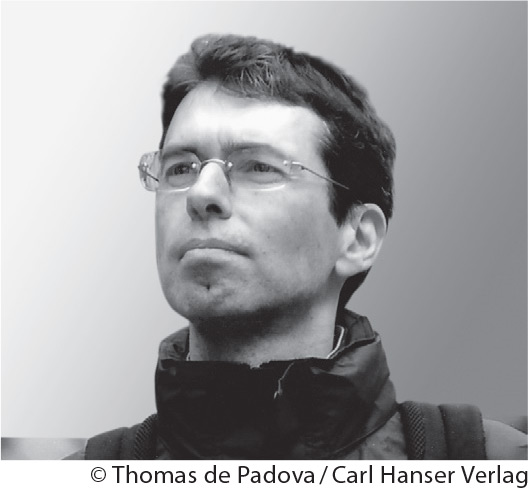
Alone Against Gravity explores why Einstein become a pacifist and how he began to devote himself to political issues. It addresses why Einstein did not move back to Switzerland where he had citizenship and had been living previously. Most importantly, it shows how Einstein - working in the center of a collapsing world - reinvents time and space and finishes his revolutionary theory about general relativity.
Dancing On A Powder Keg
Product Code: 019
Dancing on a Powder Keg
The Intimate Voice of a Young Mother and Author, Her Letters
Composed in the Shadow of Hitler’s Third Reich;
Her Poems from the Theresienstadt Ghetto
By Ilse Weber
Translated and Foreword by Michal Schwartz
Ruth Bondy on Theresienstadt
Afterword by Ulrike Migdal
”I have read many accounts, but this account by someone who did not survive… is exceptional.”
- Prof. Yehuda Bauer, Yad Vashem
”This sobering, respectful collection brings a haunting legacy out of the viciousness of the war.”
- Karen Rigby, Foreword
“Dancing on a Powder Keg addresses the coming tide of the Holocaust, the heartache of saving a child by sending him away, and the reality and horror of Theresienstadt. This is a haunting and unnerving narrative of one woman’s world being destroyed.”
- Renita Last, Jewish Book Council
When asked, "Who is a heroine of the Holocaust?" most people immediately respond: Anne Frank. With the publication of her diary after war she became THE female icon of the Holocaust, though she was only a child. There were women who were also heroines, and their courageous stories are only now coming to light. "The fate of Jewish women and the specific problems they faced is a topic that has barely been touched upon," says Professor Yehuda Bauer of Yad Vashem and an international authority on the Holocaust. “I have read many accounts, but this one (Dancing on a Powder Keg) by someone who did not survive, and whose story has been reconstructed, is exceptional." he says.
Ilse Weber, from Czechoslovakia, deserves recognition. Dancing on a Powder Keg which contains 100 letters and 63 poems written by Ilse between 1933 and 1944 will endear her to the hearts of American readers. This is the first time Ilse's letters, songs, and poems, originally written in German, have been published in English. The book contains photographs, drawings, and two background essays by leading experts.
Ilse was a wife and mother, a radio personality, a musician, an author and a published poet. Dancing on a Powder Keg reveals her multi-faceted life living in Prague before the war. It depicts how her family, career and emotions unraveled as the Nazis gained power.
Ilse, her husband Willy, and her younger son Tommy were imprisoned in the Theresienstadt ghetto from 1942-1944. Ilse worked in the children's infirmary and sang to the young patients. She risked her life writing poetry about the dire circumstances. Language offered a refuge and consolation to Ilse and her fellow inmates benefited from her writing. Ilse's poems were recited and memorized by thousands of people in the ghetto, and survivors say the poems kept their spirits alive.
In 1944, Ilse volunteered to accompany the sick ghetto children on their transport to Auschwitz. Upon arrival, she sang her beautiful lullaby, Wiegala, to calm the children as they were led to the gas chambers. Both Ilse and her son Tommy perished along with them. Wiegela has been recorded and performed by singers across Europe. It is currently featured in the Tony nominated Broadway show Indecent. Ilse's poignant poem Letter to My Son is featured on a YouTube video, with Ilse's grandson in the audience. (Ilse's family and the miraculous discovery of the letters provides another layer to her story narrated in Ulrike Migdal's afterword).
Peace, Justice, and Jews - Reclaiming Our Tradition
Product Code: 011
Edited with an Introduction by MURRAY POLNER and STEFAN MERKEN
Reflections, by thinkers and activists on the Jewish tradition of non-violence and compassion.
The Jewish tradition of justice, first expressed by the prophet Isaiah and nourished during two millennia of Exile, has placed Jews at the forefront of struggles for civil rights, labor rights, anti-militarism, and compassion for the most vulnerable: the poor, the hungry, and the oppressed.
In this landmark collection of contemporary Jewish thought, editors Murray Polner and Stefan Merken have drawn on the work of a wide variety of thinkers and activists in Israel and the United States, including charity workers, political demonstrators, conscientious objectors, prison workers, animal rights advocates, mothers and fathers, refuseniks, rabbis, soldiers, journalists, and academics. Their diverse voices demonstrate a depth and range of thinking and commitments among Jews seeking justice today. Perhaps most urgently felt are the essays related to the Middle East, where Israel appears to rely increasingly on military superiority as a response to its complex political and territorial problems. These American and Israeli Jews deal with a profound moral crisis: whether to support Israel unconditionally as a bulwark against anti-Semitism, or to insist on a fair and peaceful solution with the Palestinians. They believe that only when human rights are respected for all, can Jews find true equality and security.
ABOUT THE EDITORS:
Murray Polner, an editor and publisher, was founding editor of Present Tense magazine and served as editor of Fellowship, the organ of the Fellowship of Conciliation. He served in the U.S. Army. He is the author of: No Victory Parades: the Return of the Vietnam Veteran; Rabbi: the American Experience, and Branch Rickey: A Biography. He co-authored Disarmed and Dangerous: The Radical Lives & Times of Daniel & Philip Berrigan, and edited When Can I Come Home? A Debate on Amnesty for Exiles, Anti-War Prisoners, and Others. He has regularly contributed to newspapers and journals.
Stefan Merken an activist, short-story writer, and novelist, was an American Fulbright Scholar in Japan, a conscientious objector during the Vietnam War, a draft counselor and West Coast representative of the Jewish Peace Fellowship from 1978 to 1995, he also served on the National Council of the Fellowship of Reconciliation for more than twenty years. He and Polner co-edited Wrestling with Your Conscience: A Guide for Jewish Draft Registrants and Conscientious Objectors and updated and expanded Allan Solomonow’s Roots of Jewish Nonviolence. With his wife, Betty, he has written two books: Wall Art and Three Plays for Quarter. He lives in Seattle, WA.
REVIEWS:
"unabashedly left-leaning, but by no means homogenous, this literate, thought-provoking collection examines from all angles, in some four dozen essays, the idea that editors Polner and Merken believe "reflects the most basic attitude in our Jewish heritage:" Shalom, "much more than the absence of war… [it encompasses] wholeness, grace, and truth." Covering everything from scriptural imperative to Israel to Arab-Jewish relations to animal rights, this is an excellent addition for libraries and classrooms... There is much to learn here for anyone, Jew or Gentile, interested in global issues of peace and justice." - Publishers Weekly
Show Me the Way to Go Home
Product Code: 012
AUTHOR: DOROTHY JANE CULLEN SCHWARTZ
Show Me the Way to Go Home, is the memoir of a 1940s-1950s girlhood in the area around West Orange, New Jersey. Dependent on a pretty but feckless single mother, boarding with relatives and acquaintances, attending many different schools, Dorothy Jane survives sharing beds with not always happy relatives, a spell in a night-care home, playing poker in smoky rooms, and her mother`s raffish companions; recalling adored teachers with clarity.
ABOUT THE AUTHOR:
Dorothy Jane (Deejay) Cullen Schwartz, a retired kindergarten teacher, lives with her husband of fifty years in a small town in New Jersey. They have two daughters and two granddaughters. In contrast to her wandering childhood, she has lived in the same house for more than forty years. Deejay is a life-long anti-war activist.
REVIEWS:
"I read Show Me the Way to Go Home over a period of several days, and each time I picked it up to read, it was hard to put down. The photos were a great help. Dorothy Jane’s ability to recall so many details from the past impressed me throughout this remarkable memoir. I can only thank her for sending it to me." - With gratitude, George Anderson , S.J., America Magazine, assoc. editor
"In Dorothy Jane Cullen Schwartz's exceptional memoir, Show Me the Way to Go Home, the author takes us deep inside the little girl Deejay was at six and seven and beyond. The author’s troubled – and at times joyous – childhood is powerfully recorded because of her ability to make us see, hear and feel very clearly what she experienced as a child. There is an extraordinary sense of immediacy that stays with the reader long after she puts the book down. This memoir is not only a story about privation and love; it also takes us on a young girl’s journey to find "her rightful place in the world." Deejay's encounter with the Catholic Church, rendered so humorously and movingly, as she struggles to have something in the world that is her own, and so discovers her "self," is really quite profound." - Dr. Judith R. Berzon, author of Neither White Nor Black: The Mulatto Character in American Fiction, 1978 Gotham Library of New York University Press
" I often watched Dorothy Jane D.J. Schwartz with my own and others’ children. I watched in awe. From whence came this insight, this ability to connect so deeply and personally with each one?
I thought I knew D.J., but Show Me the Way to Go Home opened the doors to a story I never knew, to suffering I could not have imagined. The book caused me to understand that, deprived as D.J. was of all that made a child feel safe, loved, happy, challenged, good – she devoted her life to ensure that each child with whom she came in contact would know that, if she were near, if she had any input into what might happen, that child would be safe, loved, challenged, nurtured, cared for – with all the love and insight D.J. gained in her life and in her adult career.
It is clear that D.J. paid in spades throughout her young life for her ability to reach the hearts of children and then, to be able to encourage those children to embrace life and to be builders of a better future for the children to come after them. " - Elizabeth McAlister, Johan House, Baltimore
The Brow of Dawn - One Woman's Journey with MS
Product Code: 013
AUTHOR: CATHERINE EDWARD
Foreword by Jock Murray
Not for sale by B&B in Canada
This courageous first-person account will make readers cry and laugh out loud.
The Brow of Dawn: One Woman’s Journey with MS tells the story of how this unpredictable disease has sent one woman on a different path. Writing with clarity, Catherine Edward grapples with the day-to-day truth of the disease, all the while maintaining her courage and sense of humor.
Edward first noticed unusual bodily sensations when, on a cold November day, she felt that her left side was burning hot and her right side was icy cold. A year and a half later, she was diagnosed with MS. Meeting every autumn with her neurologist, Dr. Jock Murray. She kept a diary, recording the progression of the disease between annual visits, she wrote diary-like reports. After receiving one set of notes, Dr. Murray wrote back, suggesting that she write a book from which others could benefit.
Catherine Edward was born in Saint John, New Brunswick, in 1948. After working on Ideas and Morningside for CBC Radio, she moved to Prince Edward Island in 1973, where she became a freelance journalist. She and her husband live in Belfast, Prince Edward Island.
REVIEWS:
"As you read the Brow of Dawn, you will be charmed by Catherine's wit, engaged by her thoughts, delighted by her insights, uplifted by her spirit, and energized by her strength. This is not a diary of disease; it is a story of how to live your life." - Jock Murray, O.C., M.D., F.R.C.P.C., M.A.C.P.
The Case of Paul Kammerer
Product Code: 026
Author: Klaus Taschwer
With a background in the sociology of science, political science and
philosophy, Klaus Taschwer lives in Vienna and is the science editor of
the Austrian newspaper Der Standard. He is the founding editor of the
science magazine heureka!, the co-author of Konrad Lorenz. A Biography
and recipient of the 2016 Austrian State Award for Scientific
Journalism.
Reviews:
"The Case of Paul Kammerer is a highly readable story and well-researched historical account of a remarkable biologist. Largely forgotten, Paul Kammerer was a talented, idealistic, childish and exasperating Viennese biologist, whose suicide following accusations he'd falsified the results of his groundbreaking research made headlines worldwide. Vienna in the first quarter of the twentieth century formed the backdrop to Kammerer's life, which began when the city was at its creative peak yet already showing signs of its rapid and atrocious decline into Nazism. Taschwer's important book reads like a detective story, uncovering new information concerning the allegation of fraud and providing a convincing explanation for the events that drove Kammerer to suicide. It is a careful, fascinating and chilling exposition of crimes against science and humanity and a plea for open-mindedness about past history and present agendas." — Eva Jablonka. Eva Jablonka is professor at The Cohn Institute for the History of Philosophy and Ideas at Tel-Aviv University, and co-author of The Evolution of the Sensitive Soul.
"Taschwer's biography is worth reading among others for its skilful and informative account of the history of biology since Lamarck:' — Peter Jungwirth, Wiener Zeitung extra.
"By placing the case of Kammerer in the context of Vienna's academic antisemitism and nationalism, Klaus Taschwer gives the story a new twist: it now symbolizes the once splendid, scientific Vienna's downfall, through its own fault, into pure mediocrity:' — Michael Hagner, Frankfurter Allgemeine Zeitung.
The Grieving Time
Product Code: 014
The Grieving Time - A Year's Account of Recovery from Loss
By: ANNE M. BROOKS
More than 150,000 copies sold.
A modern classic on the subject of death and dying. The late Anne Brooks looked desperately for something to read that would offer comfort after her husband’s death. Finding nothing that moved her, she began a monthly journal about the personal side of her loss, her loneliness, and her struggle to come to terms with her independence, with her new self.
Day by day, The Grieving Time recounts Anne Brooks gradual recovery. It endures as first choice for grieving spouses, f or anyone facing the loss of a loved one through death or divorce. Counselors, psychologists, social workers, health care providers, ministers, and hospice workers have found it to be one of the most helpful books in their libraries.
REVIEWS:
"This slender; heartfelt book will linger in the mind and give comfort for a long time." - The New York Times Book Review
"I have rarely seen anything as direct and, in this way, as effective." - Family Circle
"...captures in surprisingly few words the depth of her emotion..." - The Baltimore Sun
"...startling in its candor will linger in the mind..." - The Atlanta Constitution
"...deeply and personally painful, which is why it succeeds." - The Florida Times Union
Withdrawal Symptoms
Product Code: 016
Withdrawal Symptoms - Light Verse for All Weights
BY: WILLIAM WALDEN
Preface: William Walden
Over the past fifty years William Walden’s poems—collected here for the first time—have been widely published in the United States and England. In the tradition of Ogden Nash, Walden appeals to both literary and popular sensibilities. His poems elevate the humble and deflate the pompous, celebrate quotidian truths and debunk accepted ones. Incisive and humorous, Walden is a conversational and companionable poet, a wry observer who brings everyman’s eyes and ears to the complexities of modern life and culture while offering a wink and a nod to the literati.
In this debut collection Walden delights with a splendid repertoire of self-effacing thoughts, mordant reflections, and puckish jabs on a variety of topics: the conundrum of gender and relationships, the fruits and ravages of time, the vexations of travel, the ordeal of aging and death, the pretentiousness of art and literature, the joys of language and word play, and many other subjects weighty and whimsical.
SOME SAMPLE SYMPTOMS:
UNPARDONABLE
More irksome than the person who
Habitually self-exalts
Is someone who agrees with you
When you describe your faults.
YARDSTICK
You’re young in mind and heart
As long as you can dart,
Like an intrepid gladiator,
Without a downward glance
Or instant’s hesitance
Onto a moving escalator.
HOW DRUDGELIKE WASHING DISHES!
(Not from the pen of Emily Dickinson)
How drudgelike, washing dishes!
But yet the pure
Can, with resourcefulness,
Escape this chore.
As souls resist temptation
And strive for good,
So may aspiring bodies
Disdain food.
THE OPPOSITIONIST
He’s a chamber-music hater,
He’s an abstract-painting foe,
He is anti-decorator,
He detests punctilio.
He disparages quick lunches,
He objects to strong cigars,
He’s contemptuous of hunches,
He distrusts rear-motored cars.
He is cool to Method actors,
He dislikes Italian shoes,
He dismisses chiropractors,
He belittles experts’ views.
Droll remarks will not divert him
From his targets as he strikes,
But you’ll plainly disconcert him
If you ask him what he likes.
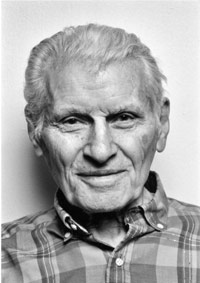 ABOUT THE AUTHOR:
ABOUT THE AUTHOR:
William Walden was on the editorial staff of The New Yorker from 1942 to 1983. His verse has appeared in a wide variety of publications, including Punch, The New Yorker, Atlantic Monthly, Saturday Evening Post, The New York Times, The Herald Tribune, The Wall Street Journal, Look, Poetry, Georgia Review, and Indiana Review. He lives in New York City.
You Are as Young as Your Spine - How to prevent and relieve backaches and other pain
Product Code: 017
AUTHOR: EDITHA HEARN
Illustrations by Charlotta Adlerova
A concise home manual on how to relieve back ache and prevent it. Explains why back problems are so common and the role of the spine. Hearn tells how to recognize the early warning signs of spinal disc trouble and how to relieve and prevent disc problems by taking care of your spine by performing corrective movements. These simple movements take about one minute and should be done at least three times a day, especially when the spine begins to feel tired, stiffens up, or aches. Hearn also recommends a ten minute daily exercise regime that strengthens the trunk muscles. Most valuable are several chapters of practical information on avoiding or easing back pain while sitting at a desk, driving a car, carrying packages, lifting a child, or lying in bed. With Adlerova's copious graphics, all routines are easy to follow.
Editha Hearn is a physical therapist who for more than twenty years directed her own clinic. A member of the Chartered Society of Physiotherapy, she trained under Dr. James Cyriax, considered to be the father of modern orthopedic medicine.


